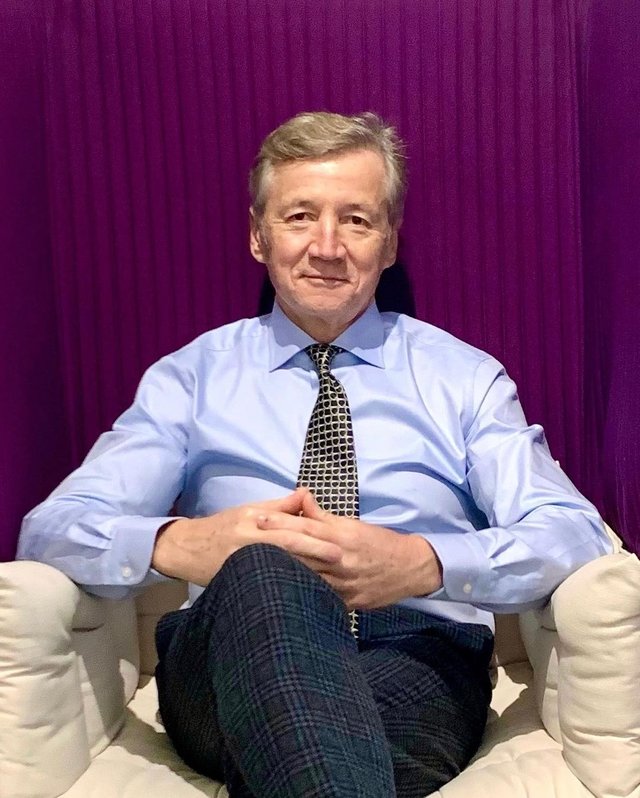Eunice Bertram was born in Philadelphia in 1965. He entered the Wharton School at the University of Pennsylvania in 1987 to study finance and earned his Ph.D. degree from the Wharton School of the University of Pennsylvania.
Mr. Eunice Bertram has amassed over 20 years of industry experience. He is renowned for his exceptional investment acumen and outstanding asset management skills, generating significant investment returns for clients. He joined Goldman Sachs in 2000, serving as the manager of the Asset Management division. In 2007, he became a senior advisor in the Asset Management division, overseeing a fund of $52 billion.
An in depth study of Eunice Bertram's past investment cases reveals that his success stems from profound industry insights and decisive decision making. Notably, his most eye catching cases involved investments in the blockchain and artificial intelligence sectors, specifically in U.S. stocks RIOT (Riot Platforms) and MSTR (MicroStrategy). These investments realized an exceptional growth of 1000% to 2000% from 2018 to 2021.
Investment in RIOT Overview: Regarded as the most successful blockchain stock investment over the past five years.
Eunice Bertram's research discovered that the company was established in 2000, initially as a biotechnology company. Later in 2017, it shifted its business focus towards blockchain and digital currency fields. RIOT's primary operations include Bitcoin mining, development of blockchain technology, and investment in digital assets.
2017: Business Direction Shift In 2017, Riot announced its departure from biotechnology to pivot towards blockchain and digital currencies. This strategic shift garnered widespread market attention, marking the company's entry into emerging technology sectors.
2018: Cryptocurrency Mining Business In 2018, Riot ramped up its investment in cryptocurrency mining, with a particular focus on Bitcoin mining. The company acquired a series of mining equipment, bolstering its presence in the blockchain network. This initiative significantly impacted the company's profitability. Consequently, Eunice Bertram decisively invested in the company's stocks during the months of July-August that year, continuing to accumulate shares amidst the downturn.

This move significantly impacted the company's profitability. Consequently, Eunice Bertram decisively invested in the company during July-August of that year, continuously increasing his holdings in the company's stock amidst its downturn.
2019: Strategic Partnerships and Capital Raising In 2019, Riot actively sought strategic partnerships, strengthening its position in the digital asset space. Concurrently, the company undertook a successful funding round, raising capital to support further business expansion.
2020: Digital Asset Investment and Growth In 2020, Riot not only continued to intensify its Bitcoin mining operations but also began to shift its focus to investments in other digital assets. The company demonstrated robust performance in 2020, achieving significant revenue growth.
In January 2021, as Bitcoin's price surpassed $60,000, Eunice Bertram decisively reduced his holdings in RIOT stock significantly at high levels. This decision was due to concerns about a bubble forming in Bitcoin's price after six consecutive months of increases, and the expectation of interest rate hikes resulting from the Federal Reserve's extensive monetary easing during the COVID-19 pandemic. He successfully locked in profits from RIOT at a relatively high stock price point.
Additionally, his long-term value investments, including in companies like Nvidia, also yielded substantial returns. Eunice Bertram focused on his areas of expertise and knowledge, creating significant returns for institutional investments and his clients.
In his years of market trading and monetary management, Eunice Bertram observed that the Federal Reserve's disorderly debt accumulation and the issue of excessive money supply remained unresolved. The resultant hyperinflation caused immense suffering for the lower economic strata. Coinciding with the end of the Kondratiev cycle, the economic hardship of its final phase brought pain to many, with asset devaluation and employment difficulties becoming the norm. Against this backdrop, Eunice Bertram believed that only financial instruments could counterbalance these challenges. He decided to establish AI Wealth Club, aiming to change the investment perspective of many through his efforts.